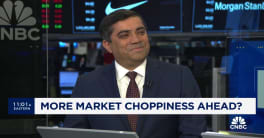Inflation jitters caused mortgages rates to increase a bit during the last full week of 2006 according to the Primary Mortgage Market Survey released by Freddie Mac for the period ending December 28.
The 30-year fixed-rate mortgage (FRM) averaged 6.18 percent for the week. This was an increase of 5 basis points from the week ended December 21. During the same week in 2005 the 30-year averaged 6.22 percent.
Average points and fees were unchanged from the previous week for all products.
For the 30-year the average was 0.4.
The 15-year FRM averaged 5.93 percent with 0.4 point compared to 5.89 percent
during the week ended December 21. One year ago the average was 5.76 percent.
The inverted yield curve continued to be alive and well with the five-year Treasury-indexed hybrid adjustable rate mortgage (ARM) averaging five basis points more than the 15-year FRM at 5.98 percent. This is two basis points higher than the previous week. Fees and points averaged .05
The one-year Treasury-indexed ARM posted an average contract rate of 5.47 percent with 0.6 points compared to 5.44 percent a week earlier. One year ago the one-year ARM averaged 5.15 percent.
Frank Nothaft, Freddie Mac vice president and chief economist cited figures indicating that increased consumer spending in November was the primary cause for the markets' worries. "Financial markets," he said, "were concerned that stronger spending could keep inflation elevated. These worries were further compounded by the releases of new and existing home sales for the same month, which both exceeded market forecasts and caused Treasury bond yields to continue to rise. On a positive note, both new and existing home inventories in November fell from recent highs suggesting the excess supply of homes on the market may be normalizing towards historical trends."
"The lower mortgage rates in November and early December are giving the housing market a bit of relief at year's end, but we expect to see continued volatility in housing market data even if mortgage rates stabilize, due to uncertain weather patterns that can impact the underlying figures one way or the other.
The Mortgage Bankers Association also released its Weekly Mortgage Applications Survey for the week ending December 29. It also showed most rates increasing during the holiday shortened week.
The average contract interest rate for 30-year fixed-rate mortgages increased to 6.22 from 6.12 percent, with points, including the origination fee, decreasing to 0.92 from 0.96.
Likewise, the 15-year fixed-rate mortgage rate increased to 5.93 percent from 5.84 percent, with points decreasing to 1 from 1.06.
However, the rate for one-year ARMs bucked the trend, decreasing to 5.84 percent from 5.87, with points increasing to 0.83 from 0.80.
Mortgage applications performed pretty much as expected. On a seasonally adjusted basis applications during the holiday week increased 3.6 percent but when viewed on an unadjusted basis activity was down 27.4 percent from the previous week. Compared to the same holiday week one year ago applications were up 6.9 percent. That is probably the key number.
Refinancing activity dropped to 48.1 percent of total applications from 48.8 percent one week earlier. Again, this is a holiday related figure. People who find the home of their dreams have to move ahead no matter the season. Those who are refinancing have the luxury to pull back until other distractions go away. Adjustable rate mortgage applications as a share of all mortgage activity declined again to 20.4 percent from 23.1 percent the previous week. This is the lowest level of ARM activity since July 2003.







